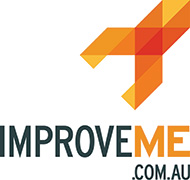Networking in the time of COVID-19

by ImproveMe co-founder Claire King
Like many, I have spent the last two months working from home in ‘iso’, practicing social distancing to help Australia “flatten the curve”. And while it looks like our commitment to the cause has had a very positive impact on our nation’s ability to limit the number of confirmed COVID-19 cases across Australia (touch wood), I read a report recently that shared a concerning statistic of a different kind.
Shutdown: estimating the COVID-19 employment shock, released by the Gratton Institute, has estimated that between 14 and 26 per cent of Australian workers could be out of work as a direct result of mandatory and voluntary spatial distancing. That percentage equates to between 1.9 to 3.4 million Australians.
History suggests that recovery from periods of high unemployment is rarely fast, which got me thinking about the various ways that a job seeker in today’s social and financial climate (whether unemployed or just seeking a new opportunity) could seek to maximise the additional ‘down time’ they might find they now have on their hands.
One of the first things my co-founder Brent encourages those he professionally mentors to do is “network, network, network”. But considering this generally involves reaching out to people to catch up for a chat over a coffee, or putting yourself out there by attending networking events, it’s not quite that easy at present.
So what can you do to network in the time of COVID-19? Here is our list of top tips:
- Start by mapping out your personal and professional network. Think about EVERYONE you know – from family and friends, to work colleagues (past and present), business contacts, that guy / girl you met once at a seminar / meeting / barbeque, friends of friends, the parents of your child’s school friends, your hairdresser’s husband who works at that company…and don’t forget key contacts you have on LinkedIn.
- Once you have mapped out all your contacts (plus those people you would like to have as a contact in the future), prioritise them based on who to reach out to first. For example, you could focus on those who may have an immediate opportunity for you, followed by contacts who could make a useful introduction for you.
- Prepare to have some conversations that might put you out of your comfort zone. In your mind, rehearse a ‘script’ or a few key points, being forthright about your situation and what you are seeking to achieve. Politeness and honesty are both admirable traits.
- Pick up the phone. I know this seem obvious (even old school), but you’ll find that everyone working from home is glued to their mobile even more than normal as a method of business communication. So it’s a great way to catch them. Just be sure to kick off by checking if you have caught them at a time when they have a few minutes to speak.
- Email directly if you have their email address. If the person’s email address has been given to you by a mutual acquaintance, make sure to explain this at the start of your message.
- LinkedIn – message your contacts or ask to connect with new contacts. You could also consider doing posts about your situation and what you are seeking, or what you have been experiencing, or sharing your personal or professional opinion on a subject. Create some visibility for yourself!
- Ask if you can set up a time to speak – for example 15 minutes for a phone chat or video call. Then make the call (and be on time!), ensuring you are prepared with a few key talking points or questions you want to ask them. For example:
- Start by thanking them for their time and explaining your situation / why you’re keen to have a brief chat.
- What can you tell me about how you got into the [Construction / Financial Planning / Floristry…] industry? It’s a career path I’m keen to explore so it’s interesting to hear how others got started in it.
- What are the things you like most about working in the industry / your role? What are the things you find most challenging?
- Do you have any recommendations for me about organisations or industry associations I should contact, or other people that might be useful for me to reach out to?
- If you attend any online seminars, webinars or conferences, reach out to the speakers afterwards. Tell them you enjoyed their presentation (assuming you did!) and ask them a further question or two. Connect with them on LinkedIn too.
- Make sure to use those all important words – “Thank you” or “Thanks, I really appreciate your time” – with everyone that you contact, whether verbally or by digital means. They’ll definitely remember your expression of gratitude and it speaks volumes about your professionalism.
As you can see, by no means does the COVID-19 pandemic means that networking is a thing of the past. In fact, it’s the perfect time to get started if it’s not your strong point!
We can’t reiterate enough how helpful it is to have an supportive network behind you when you are seeking a new challenge, or even just looking to grow your knowledge to help prove your worth in a current role.
One final thought – if you know of others in the same boat as you, why not share suggestions about what networking tactics worked for you, to help them as they face similar challenges.
Why is ImproveMe relevant for all of us?
Personal development is a well-used yet frequently unexplained term. It refers to our ability to be proactive, managing ourselves effectively, regardless of the challenges thrown our way, and removing any reliance of waiting for others to ‘make things happen’ for us. The reality is that we may not always achieve our personal objectives, but we will certainly experience richer and more rewarding outcomes when we make that commitment to pursuing our own development.
ImproveMe is designed to be the vital tool that can help drive your personal growth, maturity and success, whilst helping you achieve any or all of the following:
- Understanding yourself better
- Managing your future better
- Allowing you to build better relationships
- Creating milestones and opportunities to achieve your goals
To find out more about how ImproveMe works and why you should use it, read on here.
How can I make the most of my peer assessment results?
You may have chosen for your ImproveMe journey to include a ‘peer assessment’ from a close friend, family member, teacher, coach or other trusted person who wants to support your personal development. If you did, congratulations! Peer assessment typically leads to an increase in ongoing motivation to continually improve.
It can be common for us to deliver quite a critical perspective of ourselves and our competencies in self assessments, and peer assessments can help balance this view for us. Similarly, many of us have ‘blind spots’ (or unknown opportunities for improvement) that may only become evident through a peer assessment. Therefore you may find that the assessment given by your peer is different to the results of your own self assessment for some assessment questions.
Differing results creates an excellent opportunity for you to sit down and discuss the outcomes with your peer. Depending on the level of variation in your answers, this can be quite a confronting discussion for both you and the peer! However, if it’s approached in a open, honest and positive manner, based around a philosophy of self improvement, it can be an incredibly valuable conversation to have.
Ask why they rated you as they did for the questions highlighted on the comparison email you received, and listen carefully to their answer. You may find they were thinking of different examples than you were when they rated you, in which case you can ask why those examples were the ones that sprung to mind for them.
You might be able to uncover ‘blind spots’ that you have (both positive and negative) and discover important things about your skills and talents that you were not aware of before. You’ll be amazed at what you could learn.
After your discussion with your peer, consider the new perspectives you have been given and how you can use that information as you embark on a path of self improvement. Reflect back on the feedback from time to time, or check in with your peer to see how their opinions may have developed or changed. Personal development is all about continuous revision and improvement, whatever your chosen field!
Congratulations for exhibiting the courage to include the independence of a trusted peer assessor in your journey. Your commitment to personal improvement is well and truly underway.
Don’t forget to collect points in the ImproveMe Development Portal for undertaking peer assessment and discussing any variation in results with your peer.
What is competency based testing and why is it so important?
The ImproveMe Online Personal Improvement Assessment is designed to identify the competencies (skills, talents and abilities) you possess and have practiced (knowingly or unknowingly) to a given level.
Competencies focus on the personal attributes or inputs of an individual. They are the behaviour that lies behind competent performance. In other words, competencies are the skills and technical attributes that individuals must have, or must acquire, to perform effectively at work.1
How is this different to a personality test or behavioural based testing?
A personality test or behavioural questions are trying to find out more about your personality. They aim to find out your personal preferences and what drives you to behave in a certain way. They help to assess whether you would fit the culture of a certain job or organisation, based on your personality and things like your communication and your decision-making style.2
Why is it important to understand your own competencies?
There is an old saying that “you don’t know what you don’t know”. Whether you’re a professional athlete, a school/university student or an everyday person on the street, you possess a range of skills and technical attributes (competencies) that you have developed over the course of your life. However you may not be fully aware of what your competencies are, or how a skill you learned in one area of your life would apply in a working environment. ImproveMe can greatly help with your self-awareness in this area.
Why is competency based testing important in today’s business environment?
With a continuously evolving employment environment driven by rapid advancements in technology, the most significant competitive advantage for the businesses of tomorrow are the skills, talents and contributions of the people who work there.
Competency frameworks are a rapidly emerging step to ensure people are adequately prepared for this changing workforce. Competency based assessments introduce a more scientific approach to pinpointing individual skills and strengths, which can be used to identify those people who are best placed to help an organisation grow and reach its potential.
In turn, this creates individuals who become both accountable and responsible for their personal growth and development, and allows them to be better prepared for an evolving future.
Take the first step to understanding your key competencies today!
